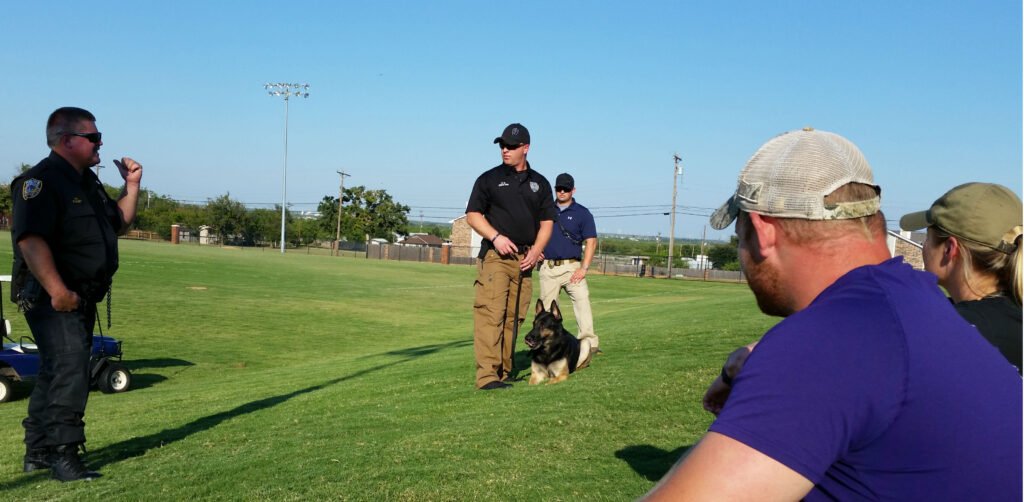Intro Block Section Instruction
Form Block Section
Write all of the introduction content below. Only use NON
FULL-WIDTH blocks.
Full-Width blocks can be inserted
outside of this block and will wrap around the form.
Use the custom HTML block below to embed your form.
Amplify your impact in the world of criminal justice.
Whether you have hopes of becoming a forensic scientist, crime scene analyst, private investigator, or a long list of versatile roles in the criminal justice field, an advanced degree in criminal justice will equip you with the knowledge and critical thinking skills that will pave the way for you to leave your positive impact on society.
Gain specialized skills and open new professional opportunities with a fully-online or hybrid master’s degree in criminal justice at HSU. Emphasizing real-world learning and enlightened by faith, our program prepares ethical, engaged, and confident servant leaders.
Our master’s in criminal justice offers unique opportunities to work with faculty across diverse disciplines, at HSU’s campus or online, preparing you for laboratory, analyst, and other leadership roles within the criminal justice system.
You can focus your criminal justice master’s degree in one of three concentrations: forensic science, criminal behavioral analysis, or justice administration and management. We also offer a thesis and non-thesis option.
Who Is the Master’s in Criminal Justice Designed For?
The field of criminal justice is changing, and there is a growing need for professionals skilled in forensic science, criminal behavioral analysis, and justice administration.
Our program is designed for students who wish to advance in the field, gain specialized expertise, or open doors to different career options. Earning your master’s degree can put you on a faster track to promotions, and help you build technical, analytic, and leadership skills essential for long-term career growth. It can also boost your earning potential: the U.S. Bureau of Labor Statistics finds that, on average, master’s degree graduates earn $12,000 per year more than those with only a bachelor degree.
Master’s in Criminal Justice Requirements
To be eligible for admission to the M.S. in criminal justice program, students must hold or be pursuing a bachelor’s degree from an accredited institution with a 3.0 GPA in the last 60 semester hours and a 3.0 in the undergraduate major. Students may hold an undergraduate degree in any field.
A writing sample and a written statement of professional purpose and goals must be provided. No GRE required.
Why Earn Your Master’s Degree in Criminal Justice Degree at Hardin-Simmons?
Why Earn Your Master’s Degree in Criminal Justice Degree at Hardin-Simmons?
Flexible Options
We offer a 36-hour thesis program, and a 30-hour non-thesis program, both of which lead to a M.S. in criminal justice. The thesis option is ideal for students who want to focus more on research, while the non-thesis option is a strong choice for working students who want to advance in their careers. Offered fully online with the option of select face-to-face and hybrid courses, the program provides the flexibility that students need.
Career Specialization
Advance your skills and knowledge in a specialized area of criminal justice. We offer concentrations in forensic science, criminal behavioral analysis, and justice administration and management. Each of these options represents some of the fastest growing segments (and most sought after skills by employers) in the criminal justice field.
Experienced Faculty
Our faculty bring proven experience to the criminal justice master’s program, along with strong connections to criminal justice professionals and alumni. When you have a question, your instructors are here to help. You’ll also benefit from one-on-one academic and career advising as you work toward your master’s in criminal justice.
Outcomes
Advance in your law enforcement job. Work in a crime lab. Serve youth and families in the juvenile system. Pursue law or other professional school. When you earn your master’s degree in criminal justice at HSU, you open doors to diverse career options.
Our M.S. in criminal justice program alumni are sought after by justice agency chiefs, directors, and other leaders. One of our graduates was recently offered a job by the FBI. Others include the Chief of the Taylor County Juvenile Probation Department, and a Texas Game Warden of the Year. Some have also gone on to successful careers in law.
If you’re thinking about long-term job security, criminal justice is an excellent field. According to the Bureau of Labor Statistics, jobs for law enforcement, private investigators, correctional and parole officers, and forensic science technicians will experience continued growth throughout the next decade.
“I applied for the master’s degree to further my education in criminal justice in order to be a bridge between law enforcement agencies and the child welfare system. This program has forever impacted my relationships within this community. Dr. Brown is a phenomenal leader within this community and continues to maintain connections and relationships with graduates. I have even had the opportunity to co-facilitate a training with Dr. Brown to the local juvenile probation department. This opportunity lead to a keen focus on cross-collaboration between juvenile and child welfare to prepare our community for the upcoming dual court in which juvenile and child protective services cases will be held at the same time in front of the same judge.”
Kaycee Robles

Program Details
Click on plus button at the bottom of this Accordion BLOCK (not accordion tab) to create a new tab. Select Accordion TAB block to edit tab headline. Select nested blocks within accordion tab to edit content.
-
HSU Criminal Justice Association
Featuring guest speakers, field trips, and more, HSU’s student-led Criminal Justice Association offers a great opportunity to engage with the many aspects of the law enforcement and corrections systems. You can also participate in a variety of activities designed to enhance your knowledge of the field while networking with criminal justice professionals in the community.
-
Scholarships for Criminal Justice
HSU offers a unique scholarship opportunity for criminal justice master’s program students through the Carl Wesley Owen Trust.



